Does A “Pitch Event” or “Demo Day” Constitute “General Solicitation” under the JOBS Act?!
Disclaimer: This post discusses general legal issues, but it does not constitute legal advice in any respect. This post is not a substitute for legal advice and is intended to generate discussion of various issues. No reader should act or refrain from acting on the basis of any information presented herein without seeking the advice of counsel. Graffagnini + Associates, LLC and the author expressly disclaim all liability in respect of any actions taken or not taken based on any contents of this post. The views expressed herein are personal opinion.
The spring entrepreneurial season is upon us. Locally, New Orleans Entrepreneur Week is coming up March 22-28, 2014. Launch Fest and LaunchPad Ignition coincides with Jazz Fest in the Spring. PowerMoves Nola is happening July 2014. Angel networks and seed funds are hosting events where companies can pitch their ideas and network with potential investors. There is much confusion in the entrepreneurial community about whether or not companies can include an “ask” slide or information related to a potential “investment opportunity.” Louisiana has been abuzz with this topic this week. The new regulations passed in the JOBS Act unfortunately did little or nothing to give companies practical guidance on these issues. Further, there is fear and confusion about whether or not the act of presenting one’s business runs afoul of the law or puts additional requirements on companies as they seek fundraising. This post attempts to provoke discussion of the meaning of “general solicitation” in the context of business presentations and what issues companies and event hosts might consider to ensure that these events are conducted within the law.
Much has been written about the JOBS Act and new changes to the securities regulations allowing companies to use general solicitation and general advertising. In other words, for years, companies could not publicly announce that they were raising funds or discuss the potential terms of an investment in their companies unless they basically filed the paperwork required of a company conducting an initial public offering (“IPO”).
On September 23, 2013, however, the Securities Exchange Commission changed the rules. Specifically, they allowed companies to use “general solicitation” and “general advertising” to raise funds. However, if a company uses such means of fundraising, then they must take the extra steps of (1) only taking money from accredited investors (e.g., high net worth individuals) and (2) taking reasonable steps to verify that the investors in the company are accredited investors.
Many investors understandably do not want to share their credit reports, tax returns and other personal financial documents with the companies they invest in. Many companies do not want to spend the money on lawyers or accountants to verify that investors are accredited, and many want the flexibility to take money from non-accredited investors. Hence, the million dollar questions:
Does presenting at a pitch competition, demo day or entrepreneur event constitute “General Solicitation” that requires a company use Rule 506(c) to only take money from verified “accredited investors”? What can entrepreneur pitch event organizers do to make sure this does not happen?
Unfortunately, no one can say for sure at this point. Almost all practitioners in securities law agree that there is a risk that a business “pitch” or company presentation might be considered by a regulatory authority to constitute a general solicitation or general advertising. People have expressed concern over these events for years. By the same token, virtually everyone agrees that these events are useful events, and they are going to continue. So, the question becomes what are some strategies parties can consider to help minimize risk if their intention is not to fundraise using general solicitation?
The terms “general solicitation” and “general advertising” are not defined in the rule nor were they discussed by the SEC when the terms were released in the regulations. The SEC uses a facts and circumstances analysis. Rule 502 of the SEC Regulations does characterize these two things as “general solicitation”: “[a]ny advertisement, article, notice or other communication published in any newspaper, magazine, or similar media or broadcast over television or radio”; and “[a]ny seminar or meeting whose attendees have been invited by any general solicitation or general advertising.” Does that sounds like your conference or event?
Aside from the example in Rule 502, itself, there is not a great deal of analysis in the cases decided by courts or in other authorities. Numerous groups are asking the SEC whether “demo days,” “venture fairs” or “pitch events” as currently conducted around the country constitute general solicitation. In fact, at best, the SEC is hesitant to take a position on this issue when questioned (see around 52:40 for the answer, stating “well, we don’t have a definition of general solicitation…”, which originally came to my attention in a post by Joe Wallin). What indications there are as to the SEC’s leanings can be discouraging for companies and host organizers (for example, that these are illegal, but they have not taken enforcement action yet). What we are left with, then, are “No-Action Letters” and other interpretive guidance from the SEC. The most cited guidance on “demo days” or pitch contests is the Michigan Growth Capital Symposium (SEC No-Action Letter, May 4, 1995) (“Michigan Growth”). In Michigan Growth, the SEC “particularly” noted the following factors in determining that it would not recommend enforcement action against the symposium or presenting companies:
- A limited number of private companies (20 total) were invited to attend.
- The event was advertised by “targeted mailings to known accredited investors, limited generic advertising in the Venture Journal and by word of mouth from prior attendees.”
- The audience was limited to “sophisticated” attendees (who were likely to be “accredited investors”) whose primary interest was investing.
- Companies presenting did not include any specific financing transaction details.
- Attendees and presenting companies did not have pre-existing contacts or relationships.
- The symposium hosts did not charge any brokerage type fees.
Based on the little guidance we have from the SEC on the subject and what we hope is common sense, below are some considerations for those event hosts and companies who do not want to be placed into 506(c) general solicitation territory merely for participating in a pitch event or accelerator program with a “demo day”:
For Event Hosts:
- Do not advertise the event at which companies are presenting their businesses as a “pitch event” or investment seminar, unless you are prepared to (a) limit the means by which you invite people attending, (b) limit attendance to accredited investors and/or limit the attendees to those people with whom the companies have a “substantive, pre-existing relationship” with the company, and/or (c) inform the companies presenting that by presenting, they will likely be conducting a general solicitation. Consider whether any of the presenters have filed to conduct a “general solicitation” and whether that affects other presenting companies who have not.
- Consider limiting the advertising and nature of the event to an informational and educational purpose only exhibit of companies that have gone through your accelerator program, educational process, etc., unless your true purpose is to facilitate investment, in which case, you probably are facilitating a general solicitation and should take steps to comply with the rules. There is likely no guarantee this alone would prevent the SEC from determining that the event is a general solicitation in substance. Substance over form is important to think about here.
- Event hosts or organizations may provide consulting services to some of the presenter companies, but note that the Michigan Symposium services were expressly limited to advising about the weaknesses of corporate structure, improving business plans and informing about available venture capital sources, and involved a small % of presenters over the years. Whether additional services create more risk that an event could be considered “general solicitation” is unclear.
- Consider a disclaimer stating that the event is not a solicitation event at all, unless, of course, that is your actual purpose. Again, such a disclaimer is probably unlikely to save an event which is a fundraising seminar in substance.
- Event hosts should not seek or receive any compensation from presenters or attendees, except for attendance fees associated with the hosting of the seminar. Event hosts should not charge any conditional fees or other fees which may be considered “brokerage” type fees in the eyes of the SEC.
- Encourage your presenting companies not to include any slides or other information regarding financing transaction details or fundraising, and do not let them distribute investment materials. The focus of the event should be informational or educational, if that is the purpose and substance.
- Be very cautious about and refrain from imploring attendees to “get out your checkbooks” and using similar invitations to consider the presenting companies for investment.
For Companies:
- Include an appropriate disclaimer in your opening slide, clearly stating that you are not soliciting any investment from the presentation or event attendees, unless, of course, you are. If you are actually soliciting potential investors, then you need to take the appropriate steps to conduct your financing as a general solicitation.
- Remove all “ask slides” “investment opportunity” slides, information about returns on investment, investment strategy, etc. Limit your presentation to your business concept/product and strategy. Deals rarely happen at or immediately after these events. You will likely have a chance to fully present to parties you meet and with whom you can build a “pre-existing, substantive” relationship.
- Notably, the SEC has discussed whether a company can advertise its products and services without necessarily being considered to be conducting a “general solicitation”, but if the product and services advertising or promotion is part of the overall efforts to raise funding, the SEC has been unwilling to express whether the activity constitutes a general solicitation. In other words, you might be conducting a general solicitation if you are presenting in these contests while or leading up to your fundraising efforts. Also, things like mass mailings, discussing the investment opportunity with media or conditioning the market, etc. can all constitute general solicitation. Also, the purpose of the presentation may be an issue. An older law review article on this issue has argued that if the intention or purpose of the presentation is to awaken interest in a specific financing, then you are more likely to be soliciting an offer in investment. On the other hand, if a company is presenting for an “independent significance and purpose”, then it may be less likely to be viewed as having conducted a general solicitation.
- If you are already conducting fundraising efforts at the time that you will present your business at one of these events, consult with your attorney to determine whether participating in the pitch event poses problems for you.
- If the attendee list is available prior to the event, determine whether (a) investors are accredited, and (b) whether you can (or should) develop a substantive, pre-existing relationship with them before the event.
- Have an attorney review your slides before you present (potentially, have the attorney review your presentation with you) to remove content that might be construed as a solicitation of investment to the public at large.
- Consider your actual purpose in attending the event and making the presentation. If the true purpose is fundraising or promoting fundraising efforts, you may need to rethink your fundraising strategy.
Keep in mind that the SEC only discussed whether the Michigan event hosts were conducting a general solicitation. The SEC expressly denied providing any guidance on whether companies presenting in the Michigan Symposium could rely on the Michigan Symposium no-action letter. In fact, the SEC stated that presenting companies must conduct their own analysis of the rules and private placement exemptions. Future posts here will discuss various letters discussing investor networks, online private placements, etc. and what lessons, if any, companies can take from those.
The SEC is unlikely to issue guidance anytime soon about the meaning of “general solicitation.” In the meantime, the U.S. entrepreneurial system is not likely to stop hosting the 100s of demo days, pitch events and entrepreneur weeks all over the country. These events are well-received and important events from an educational and business perspective. So, the hosts and companies participating in these events are trying to determine what to do in light of the recent changes (although most agree that there have been problems with the way these events have been conducted in the past). As everyone in entrepreneurial organizations moves forward, they should consider the factors previously examined by the SEC, use common sense about whether anyone is actually soliciting investment and make a decision about the appropriate course of action based on the facts and circumstances. Ultimately, everyone should be discussing potential ways to mitigate the regulatory risks in light of what is actually happening on the ground and in the SEC. Perhaps the goal in light of little regulatory guidance is that best practices can emerge so that companies and investors can safely match opportunities to capital. As market “best practices” emerge from this discussion, companies and regulators may be less likely to collide unintentionally.
Disclaimer: This post discusses general legal issues, but it does not constitute legal advice in any respect. This post is not a substitute for legal advice and is intended to generate discussion of various issues. No reader should act or refrain from acting on the basis of any information presented herein without seeking the advice of counsel. Graffagnini + Associates, LLC and the author expressly disclaim all liability in respect of any actions taken or not taken based on any contents of this post. The views expressed herein are personal opinion.
The spring entrepreneurial season is upon us. Locally, New Orleans Entrepreneur Week is coming up March 22-28, 2014. Launch Fest and LaunchPad Ignition coincides with Jazz Fest in the Spring. PowerMoves Nola is happening July 2014. Angel networks and seed funds are hosting events where companies can pitch their ideas and network with potential investors. There is much confusion in the entrepreneurial community about whether or not companies can include an “ask” slide or information related to a potential “investment opportunity.” Louisiana has been abuzz with this topic this week. The new regulations passed in the JOBS Act unfortunately did little or nothing to give companies practical guidance on these issues. Further, there is fear and confusion about whether or not the act of presenting one’s business runs afoul of the law or puts additional requirements on companies as they seek fundraising. This post attempts to provoke discussion of the meaning of “general solicitation” in the context of business presentations and what issues companies and event hosts might consider to ensure that these events are conducted within the law.
Much has been written about the JOBS Act and new changes to the securities regulations allowing companies to use general solicitation and general advertising. In other words, for years, companies could not publicly announce that they were raising funds or discuss the potential terms of an investment in their companies unless they basically filed the paperwork required of a company conducting an initial public offering (“IPO”).
On September 23, 2013, however, the Securities Exchange Commission changed the rules. Specifically, they allowed companies to use “general solicitation” and “general advertising” to raise funds. However, if a company uses such means of fundraising, then they must take the extra steps of (1) only taking money from accredited investors (e.g., high net worth individuals) and (2) taking reasonable steps to verify that the investors in the company are accredited investors.
Many investors understandably do not want to share their credit reports, tax returns and other personal financial documents with the companies they invest in. Many companies do not want to spend the money on lawyers or accountants to verify that investors are accredited, and many want the flexibility to take money from non-accredited investors. Hence, the million dollar questions:
Does presenting at a pitch competition, demo day or entrepreneur event constitute “General Solicitation” that requires a company use Rule 506(c) to only take money from verified “accredited investors”? What can entrepreneur pitch event organizers do to make sure this does not happen?
Unfortunately, no one can say for sure at this point. Almost all practitioners in securities law agree that there is a risk that a business “pitch” or company presentation might be considered by a regulatory authority to constitute a general solicitation or general advertising. People have expressed concern over these events for years. By the same token, virtually everyone agrees that these events are useful events, and they are going to continue. So, the question becomes what are some strategies parties can consider to help minimize risk if their intention is not to fundraise using general solicitation?
The terms “general solicitation” and “general advertising” are not defined in the rule nor were they discussed by the SEC when the terms were released in the regulations. The SEC uses a facts and circumstances analysis. Rule 502 of the SEC Regulations does characterize these two things as “general solicitation”: “[a]ny advertisement, article, notice or other communication published in any newspaper, magazine, or similar media or broadcast over television or radio”; and “[a]ny seminar or meeting whose attendees have been invited by any general solicitation or general advertising.” Does that sounds like your conference or event?
Aside from the example in Rule 502, itself, there is not a great deal of analysis in the cases decided by courts or in other authorities. Numerous groups are asking the SEC whether “demo days,” “venture fairs” or “pitch events” as currently conducted around the country constitute general solicitation. In fact, at best, the SEC is hesitant to take a position on this issue when questioned (see around 52:40 for the answer, stating “well, we don’t have a definition of general solicitation…”, which originally came to my attention in a post by Joe Wallin). What indications there are as to the SEC’s leanings can be discouraging for companies and host organizers (for example, that these are illegal, but they have not taken enforcement action yet). What we are left with, then, are “No-Action Letters” and other interpretive guidance from the SEC. The most cited guidance on “demo days” or pitch contests is the Michigan Growth Capital Symposium (SEC No-Action Letter, May 4, 1995) (“Michigan Growth”). In Michigan Growth, the SEC “particularly” noted the following factors in determining that it would not recommend enforcement action against the symposium or presenting companies:
- A limited number of private companies (20 total) were invited to attend.
- The event was advertised by “targeted mailings to known accredited investors, limited generic advertising in the Venture Journal and by word of mouth from prior attendees.”
- The audience was limited to “sophisticated” attendees (who were likely to be “accredited investors”) whose primary interest was investing.
- Companies presenting did not include any specific financing transaction details.
- Attendees and presenting companies did not have pre-existing contacts or relationships.
- The symposium hosts did not charge any brokerage type fees.
Based on the little guidance we have from the SEC on the subject and what we hope is common sense, below are some considerations for those event hosts and companies who do not want to be placed into 506(c) general solicitation territory merely for participating in a pitch event or accelerator program with a “demo day”:
For Event Hosts:
- Do not advertise the event at which companies are presenting their businesses as a “pitch event” or investment seminar, unless you are prepared to (a) limit the means by which you invite people attending, (b) limit attendance to accredited investors and/or limit the attendees to those people with whom the companies have a “substantive, pre-existing relationship” with the company, and/or (c) inform the companies presenting that by presenting, they will likely be conducting a general solicitation. Consider whether any of the presenters have filed to conduct a “general solicitation” and whether that affects other presenting companies who have not.
- Consider limiting the advertising and nature of the event to an informational and educational purpose only exhibit of companies that have gone through your accelerator program, educational process, etc., unless your true purpose is to facilitate investment, in which case, you probably are facilitating a general solicitation and should take steps to comply with the rules. There is likely no guarantee this alone would prevent the SEC from determining that the event is a general solicitation in substance. Substance over form is important to think about here.
- Event hosts or organizations may provide consulting services to some of the presenter companies, but note that the Michigan Symposium services were expressly limited to advising about the weaknesses of corporate structure, improving business plans and informing about available venture capital sources, and involved a small % of presenters over the years. Whether additional services create more risk that an event could be considered “general solicitation” is unclear.
- Consider a disclaimer stating that the event is not a solicitation event at all, unless, of course, that is your actual purpose. Again, such a disclaimer is probably unlikely to save an event which is a fundraising seminar in substance.
- Event hosts should not seek or receive any compensation from presenters or attendees, except for attendance fees associated with the hosting of the seminar. Event hosts should not charge any conditional fees or other fees which may be considered “brokerage” type fees in the eyes of the SEC.
- Encourage your presenting companies not to include any slides or other information regarding financing transaction details or fundraising, and do not let them distribute investment materials. The focus of the event should be informational or educational, if that is the purpose and substance.
- Be very cautious about and refrain from imploring attendees to “get out your checkbooks” and using similar invitations to consider the presenting companies for investment.
For Companies:
- Include an appropriate disclaimer in your opening slide, clearly stating that you are not soliciting any investment from the presentation or event attendees, unless, of course, you are. If you are actually soliciting potential investors, then you need to take the appropriate steps to conduct your financing as a general solicitation.
- Remove all “ask slides” “investment opportunity” slides, information about returns on investment, investment strategy, etc. Limit your presentation to your business concept/product and strategy. Deals rarely happen at or immediately after these events. You will likely have a chance to fully present to parties you meet and with whom you can build a “pre-existing, substantive” relationship.
- Notably, the SEC has discussed whether a company can advertise its products and services without necessarily being considered to be conducting a “general solicitation”, but if the product and services advertising or promotion is part of the overall efforts to raise funding, the SEC has been unwilling to express whether the activity constitutes a general solicitation. In other words, you might be conducting a general solicitation if you are presenting in these contests while or leading up to your fundraising efforts. Also, things like mass mailings, discussing the investment opportunity with media or conditioning the market, etc. can all constitute general solicitation. Also, the purpose of the presentation may be an issue. An older law review article on this issue has argued that if the intention or purpose of the presentation is to awaken interest in a specific financing, then you are more likely to be soliciting an offer in investment. On the other hand, if a company is presenting for an “independent significance and purpose”, then it may be less likely to be viewed as having conducted a general solicitation.
- If you are already conducting fundraising efforts at the time that you will present your business at one of these events, consult with your attorney to determine whether participating in the pitch event poses problems for you.
- If the attendee list is available prior to the event, determine whether (a) investors are accredited, and (b) whether you can (or should) develop a substantive, pre-existing relationship with them before the event.
- Have an attorney review your slides before you present (potentially, have the attorney review your presentation with you) to remove content that might be construed as a solicitation of investment to the public at large.
- Consider your actual purpose in attending the event and making the presentation. If the true purpose is fundraising or promoting fundraising efforts, you may need to rethink your fundraising strategy.
Keep in mind that the SEC only discussed whether the Michigan event hosts were conducting a general solicitation. The SEC expressly denied providing any guidance on whether companies presenting in the Michigan Symposium could rely on the Michigan Symposium no-action letter. In fact, the SEC stated that presenting companies must conduct their own analysis of the rules and private placement exemptions. Future posts here will discuss various letters discussing investor networks, online private placements, etc. and what lessons, if any, companies can take from those.
The SEC is unlikely to issue guidance anytime soon about the meaning of “general solicitation.” In the meantime, the U.S. entrepreneurial system is not likely to stop hosting the 100s of demo days, pitch events and entrepreneur weeks all over the country. These events are well-received and important events from an educational and business perspective. So, the hosts and companies participating in these events are trying to determine what to do in light of the recent changes (although most agree that there have been problems with the way these events have been conducted in the past). As everyone in entrepreneurial organizations moves forward, they should consider the factors previously examined by the SEC, use common sense about whether anyone is actually soliciting investment and make a decision about the appropriate course of action based on the facts and circumstances. Ultimately, everyone should be discussing potential ways to mitigate the regulatory risks in light of what is actually happening on the ground and in the SEC. Perhaps the goal in light of little regulatory guidance is that best practices can emerge so that companies and investors can safely match opportunities to capital. As market “best practices” emerge from this discussion, companies and regulators may be less likely to collide unintentionally.



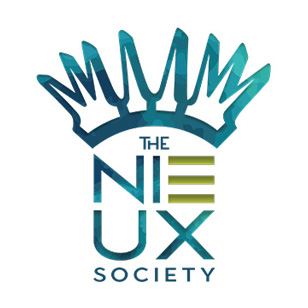
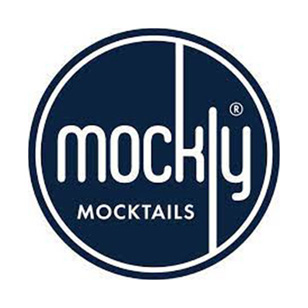
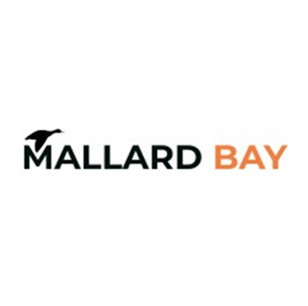












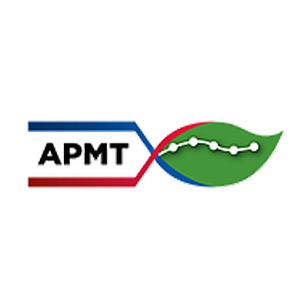


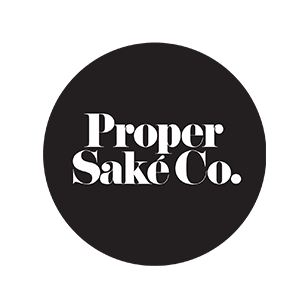
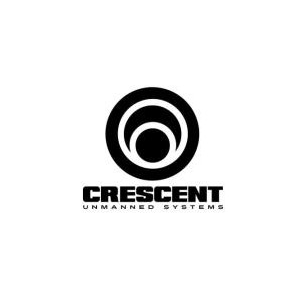
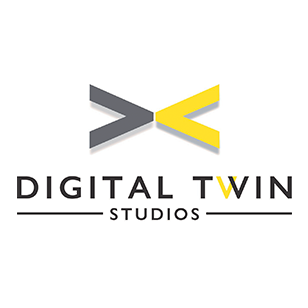

2 thoughts on “Does A “Pitch Event” or “Demo Day” Constitute “General Solicitation” under the JOBS Act?!”
Comments are closed.